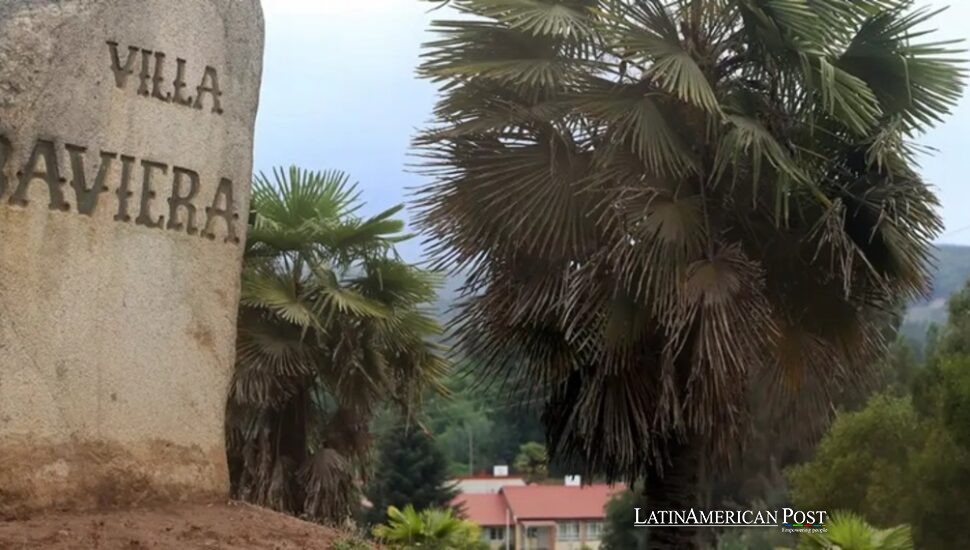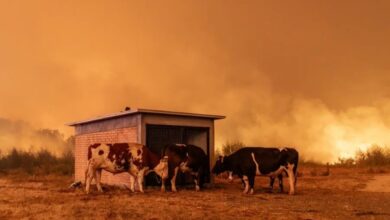Chile Confronts Colonia Dignidad’s Past as Villa Baviera Faces Expropriation

Beneath the chalet roofs and alpine façades of Villa Baviera, the earth hides a legacy too violent to erase. Once, Colonia Dignidad served as a cult, a torture chamber, and a dictatorship’s ally. Now Chile must decide: commerce, or memory.
A chalet façade over rooms that remember
With its red-tiled chalets, manicured lawns, and ginger biscuits on sale in a corner shop, Villa Baviera could pass for a misplaced German hamlet in Chile’s central valleys. Yet the name the soil whispers is older, darker: Colonia Dignidad.
Paul Schäfer, a German preacher who founded the colony in 1961, ruled with iron secrecy. Survivors recall children torn from parents, humiliations that never ended, and sexual abuse passed off as ritual. After the military coup of 1973, this cloistered horror widened into state collaboration. Opponents of General Augusto Pinochet were dragged here, locked in basements, tortured in barns and sheds. Many never emerged alive. Chile’s justice ministry says evidence links hundreds of disappeared detainees to this ground.
Schäfer died behind bars in 2010. What remains of his dominion has been repainted into a tourist enclave, complete with cabins, a hotel, and a boating pond. But Chile’s government has published an expropriation decree: 117 hectares will be seized to mark torture sites and mass graves, turning commerce into memory.
Families of the disappeared demand remembrance
For those who still wait for missing loved ones, the decree is overdue justice. In the town of Parral, Ana Aguayo keeps a fading photograph of her brother Luis, a Socialist activist arrested in September 1973. A farmer claimed to have glimpsed Luis inside Colonia Dignidad. Her parents knocked at the gates but were turned away. They searched everywhere else—police stations, courts—but Luis never returned.
“My father died of sorrow,” she told the BBC. Her mother, at ninety-six, still believes she hears her son’s voice crying out.
Government investigations say at least 27 people from Parral were killed within the colony. Among those believed to have met their end here were Socialist leaders like Carlos Lorca. To Ana, the moral equation leaves no room for commerce: “It was a place of horror. It shouldn’t be where tourists shop or eat. It must be a site of remembrance, so that it never happens again.”
Residents fear becoming victims twice
Fewer than a hundred adults still live in Villa Baviera. Many were born here under Schäfer’s command, forced to work as children, enduring beatings and silence. They insist they, too, were victims—yet now risk losing the only community they know.
“The expropriation map cuts right through our homes and businesses,” said Dorothee Munch, born inside the colony in 1977. The restaurant, hotel, bakery, butchers, and dairy that sustain them today all fall within the footprint marked for seizure. “We lived under fear, we are victims too. This will make us victims again,” she told the BBC.
Others echo her plea. Erika Tymm, separated from her parents as a toddler, says she endured shocks and humiliation. She wants to remain among neighbors who share the same scars. Seventy-three current and former residents have written to Chile’s president, demanding compensation and participation. They have even hired a public relations firm to argue their case. For them, expropriation is not only about land values but about whether the state will recognize their suffering—or uproot them once more.
‘So much cruelty happened here’
Some survivors argue precisely the opposite: that Villa Baviera’s reinvention into a tourist stop is itself obscene.
Every night as a child, Georg Klaube says, he was marched to a building, stripped, and shocked with electricity until he screamed. He recalls being drugged, sexually abused, and broken. Now, when he sees visitors dining in the same buildings, he feels sickened. “So much cruelty happened here to both Germans and Chileans,” he said. “I cannot believe there is now a restaurant where children’s tears, urine, and blood once fell.”
Klaube has joined a lawsuit against Villa Baviera’s leadership, accusing them of hoarding revenue instead of sharing it with former members. He also supports the government’s plan for a memorial.
Outside the enclave, support is strong. Political prisoners once tortured here, farmers expelled when the colony expanded, and locals abused by Schäfer all demand that memory replace commerce. The record is unflinching: Schäfer was arrested in 2005, convicted of sexually abusing 25 children, five for rape. Several lieutenants went to prison.
Now Chile must decide what comes next. “Atrocious crimes were committed here,” Justice Minister Jaime Gajardo told the BBC. “Once the state takes it over, Chileans will be able to enter freely. It will be a space for memory, so such crimes are never repeated.”
Also Read: Cuba’s Copycat Cafés Brew More Than Coffee in Havana’s Changing Streets
The chalets and chocolate-box scenery will remain. But if the decree holds, the land beneath will no longer whisper—it will speak, in Chile’s name, for those disappeared, for those violated, for those who cannot rest until memory takes root.





